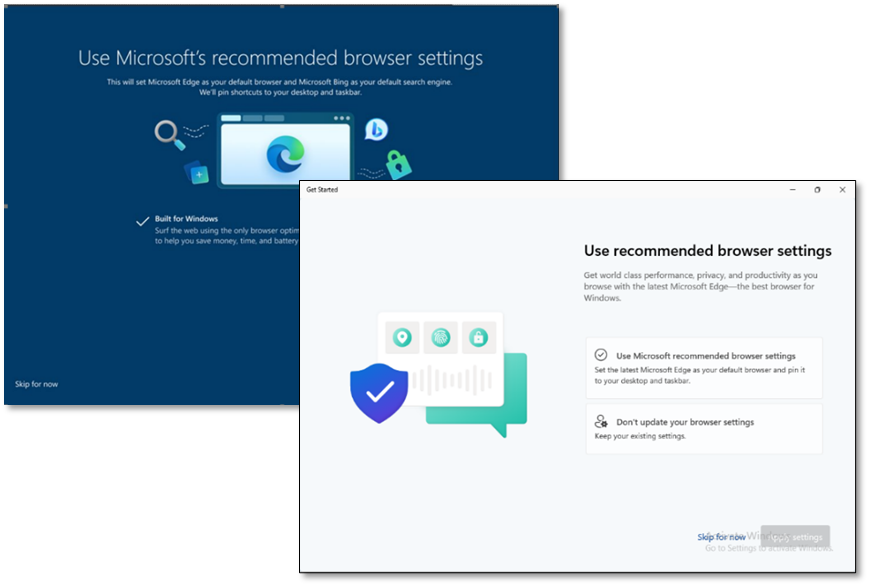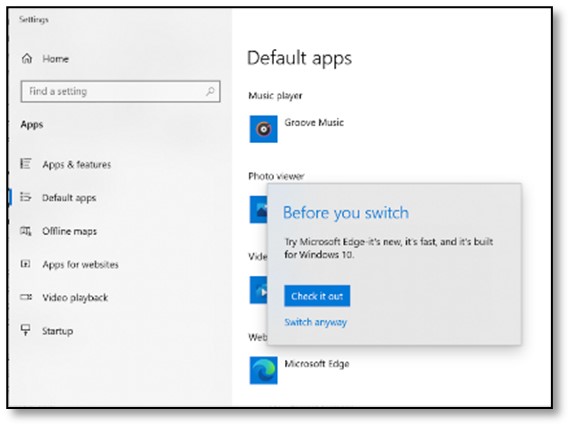Following the designation of Microsoft as a gatekeeper with respect to Windows and LinkedIn under the Digital Markets Act in September 2023, we have been deeply engaged with the European Commission to ensure that we fulfill our new obligations under the regulation. As the March 2024 deadline for compliance rapidly approaches, we have reached an important milestone for Windows.
We have released a full preview build of Windows 11 (Build 2631.2787) with technical changes designed to comply with many of our obligations under the DMA. These changes will gradually roll out to devices in the Release Preview Channel for Windows Insiders over the next couple of weeks. We will be previewing changes for Windows 10 in the Release Preview Channel at a later date. We will be tracking feedback from users, engaging with the Commission, and continuing to refine Windows accordingly.
Details on all of the changes in the full preview build are available in our Windows Blogs announcement, we want to highlight a few specific changes that we are making. Although end users of Windows have always been able to download, install, and set their default browser to any of their choice, these changes go a step further by enabling end users in the European Economic Area (EEA) to uninstall the Microsoft Edge browser. (See DMA Article 6(3) and 6(7)). And, for EEA users, they will include new integration points for applications in Windows. (See DMA Article (6(3) and 6(7)). As a result, end users will be able to, for example, add a search application for the search box on the Windows taskbar (pictured below) and switch from Bing to another search application of their choice.
These changes also include ending recommendations in various Windows experiences to set Edge as the default browser for EEA users, including during the configuration process when users initially set up or update Windows like those pictured below. (See DMA Article 6(3))
Accordingly, an EEA user’s existing default browser setting will be maintained during Windows updates. And if the user wants to switch to Edge as the default browser, the user must do so within Settings as they would to switch their default to any other browser.
Microsoft has also eliminated certain promotional efforts within Windows when EEA end users seek to change their default browsers. (See DMA Article 6(3)). These include pop-ups when end users change their default browser, as pictured below.
In response to feedback from the European Commission and community, we are taking an extra step beyond the DMA requirements applicable to Windows. We will eliminate in-product promotions of Edge (outside of standard search and advertising results available to any browser vendor), such as unique Edge banner promotions on the Bing search results page, when EEA users of Windows are using Edge or Bing to search for or download and install another browser.
We recognize that this is just one of many steps that we are taking to fulfill our obligations as a gatekeeper under the DMA. We take those obligations seriously and will continue to engage with the European Commission and listen to community feedback to meet the DMA’s goal of promoting fair and contestable digital markets.




